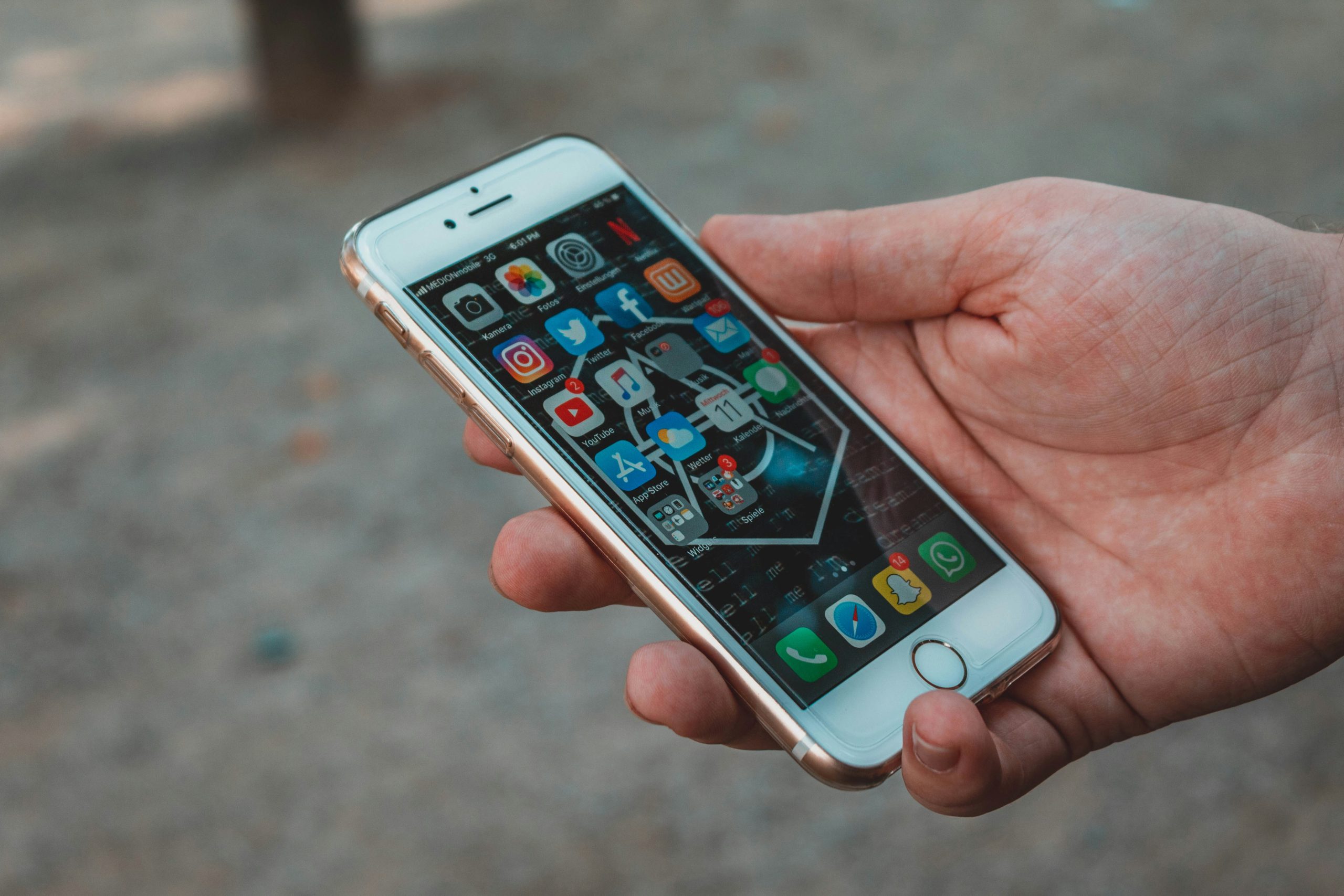have to lock Whtsapp chat
Locking your WhatsApp chats may not be something you’ve considered before, but when you think about it, why wouldn’t you want to add an extra layer of security to one of the most personal and private forms of communication in your life? With the increasing prevalence of cyber threats and privacy concerns, taking steps to protect your conversations is becoming more important than ever. In this blog post, we’ll explore various methods for locking your WhatsApp chats on both iPhone and Android devices. Whether it’s setting up a passcode or fingerprint lock or using third-party apps for enhanced security measures, we’ve got you covered. So grab a cup of coffee, sit back, and let’s dive into the world of securing your precious WhatsApp conversations!
Why you should consider locking your WhatsApp chats
In today’s digital age, our smartphones have become an extension of ourselves. We use them for everything from online banking to social media and even personal conversations through messaging apps like WhatsApp. With such a wealth of sensitive information being shared on these platforms, it’s crucial to take steps to protect our privacy.
One compelling reason to lock your WhatsApp chats is the risk of unauthorized access. Imagine if someone got their hands on your unlocked phone and started scrolling through your private messages – the potential for embarrassment or even harm is undeniable. By setting up a lock on your WhatsApp chats, you add an extra layer of security that ensures only you can access those conversations.
Another important consideration is the prevalence of cyber threats in today’s digital landscape. Hackers are constantly evolving their techniques and targeting popular messaging apps like WhatsApp. Locking your chat not only protects against physical intrusion but also safeguards against remote hacking attempts.
Privacy concerns should also be on everyone’s radar when it comes to locking WhatsApp chats. While end-to-end encryption provides a level of protection during transmission, once those messages land on your device, they are vulnerable unless adequately secured with additional measures like passcodes or biometric locks.
By taking the initiative to lock your WhatsApp chats, you’re taking control over who has access to this highly personal form of communication. It gives you peace of mind knowing that even if something were to happen to your device, no one else can read what was meant for your eyes only.
So why wait? Protect yourself and safeguard those intimate conversations by implementing security measures that ensure the confidentiality and integrity of every message exchanged via WhatsApp
Different ways to lock your WhatsApp chats
Different ways to lock your WhatsApp chats
When it comes to protecting the privacy of your WhatsApp conversations, locking your chat is an essential step. Fortunately, there are several options available for both iPhone and Android users.
For iPhone users, you can easily set up a passcode or fingerprint lock within the settings of your device. This adds an extra layer of security and ensures that only authorized individuals have access to your chats.
Android users also have the option to set up a passcode or fingerprint lock on their devices. Additionally, some Android phones offer built-in app locks that allow you to specifically secure certain apps like WhatsApp with a password or fingerprint.
If you’re looking for even more security measures, third-party apps can provide additional features such as pattern locks or face recognition. These apps often come with customizable settings that allow you to choose which chats you want to lock and how they should be protected.
When setting up a passcode or choosing any type of lock for your WhatsApp chats, it’s important to select a strong code that is not easily guessable. Avoid using common numbers like birthdays or simple patterns like 1234. Instead, opt for something unique and difficult for others to crack.
Remember that regularly updating both your device’s software and security features is crucial in keeping all of your data safe from potential threats. Stay vigilant about installing updates as they become available.
By taking these steps and implementing various locking methods available on both iPhone and Android devices, you can ensure the confidentiality of your WhatsApp conversations remains intact.
How to set up a passcode or fingerprint lock on iPhone and Android devices
When it comes to securing your WhatsApp chats, setting up a passcode or fingerprint lock on your iPhone or Android device is an essential step. Not only does this provide an additional layer of security, but it also ensures that even if someone gains access to your device, they won’t be able to open your WhatsApp chats without the required authentication.
On iPhone devices, you can easily set up a passcode or use Touch ID/Face ID for unlocking WhatsApp. Simply go to the Settings app and navigate to the “Touch ID & Passcode” or “Face ID & Passcode” section. From there, you can enable either option and choose whether you want the passcode/fingerprint/face recognition to be required immediately or after a certain time.
For Android users, the process may vary slightly depending on the manufacturer and software version. Generally, you can find these settings under “Security,” “Lock screen,” or similar options in your phone’s settings menu. Look for options like “Screen Lock” or “Fingerprint.”
It’s worth noting that enabling biometric authentication methods like fingerprint unlock adds an extra level of convenience as well as security. With just one touch of your finger (or face), you can quickly access your WhatsApp chats without having to enter a passcode every time.
By following these simple steps, you can ensure that only authorized individuals have access to your private conversations on WhatsApp. Remember to frequently update both your device’s operating system and any associated security features for maximum protection against potential threats!
Using third-party apps for additional security measures
Using third-party apps for additional security measures
In today’s digital age, privacy and security have become paramount concerns for smartphone users. While WhatsApp offers some built-in features to enhance the security of your chats, you may want to consider using third-party apps for additional protection.
There are several reputable apps available on both iOS and Android platforms that can provide an extra layer of security for your WhatsApp conversations. These apps offer various features such as app lock, fingerprint or face recognition authentication, and even decoy modes to confuse prying eyes.
By utilizing a third-party app, you can ensure that only authorized individuals can access your WhatsApp chats. Some apps also allow you to hide specific chats or encrypt them with passwords. This way, even if someone manages to unlock your device, they won’t be able to read your private conversations without the password.
When selecting a third-party app for locking your WhatsApp chats, make sure it comes from a trusted developer with positive user reviews. Additionally, check if the app has regular updates and strong encryption protocols in place.
Remember that while these third-party apps add an extra layer of security, it is crucial to keep all your device’s software updated regularly. Operating system updates often contain important patches and fixes that address vulnerabilities in existing security systems.
Taking proactive steps like setting up passcodes or fingerprints locks on our devices and using reliable third-party apps can go a long way in safeguarding our privacy on popular messaging platforms like WhatsApp. Stay one step ahead by exploring different options available out there!
Tips for choosing a strong passcode and keeping it secure
Tips for choosing a strong passcode and keeping it secure:
1. Avoid common patterns: When setting up a passcode, avoid using simple patterns like “1234” or “0000”. These are easily guessable and provide minimal security.
2. Use a combination of numbers and letters: Opt for a mix of numbers, uppercase letters, lowercase letters, and special characters in your passcode. This adds complexity and makes it harder to crack.
3. Make it long: The longer your passcode, the better. Aim for at least eight characters or more to increase its strength.
4. Don’t use personal information: Avoid using birthdays, anniversaries, or other easily accessible personal information as your passcode. Hackers can easily find such details online and exploit them.
5. Change it regularly: Regularly updating your passcode is crucial for maintaining security. Consider changing it every few months or when you suspect unauthorized access.
6. Enable auto-lock feature: Set your device to automatically lock after a certain period of inactivity to prevent others from accessing your WhatsApp chats without permission.
7. Be cautious with biometric options: While fingerprint or facial recognition can offer convenience, be aware that these methods can be bypassed by skilled hackers if they gain physical access to your device.
Remember, choosing a strong passcode is essential for protecting the privacy of your WhatsApp chats. Take these tips into consideration to enhance the security of your conversations on the platform.
The importance of regularly updating your device’s security features
Regularly updating your device’s security features is crucial in ensuring the safety and privacy of your WhatsApp chats. Technology is constantly evolving, and so are the threats that come with it. Hackers are always finding new ways to exploit vulnerabilities in operating systems and apps.
By keeping your device updated with the latest security patches and software updates, you can stay one step ahead of potential cyberattacks. These updates often include important bug fixes and enhancements that improve the overall security of your device.
In addition to updating your operating system, it is also essential to keep all your apps, including WhatsApp, up to date. App developers regularly release updates that not only introduce new features but also address any known security issues or vulnerabilities.
Neglecting these updates could leave your device susceptible to attacks such as malware infections or unauthorized access to sensitive information stored on your phone. By staying vigilant and promptly installing these updates when they become available, you can minimize the risk of falling victim to such threats.
Remember that securing your WhatsApp chats goes beyond just locking them with a passcode or fingerprint lock. It requires a holistic approach that includes practicing good digital hygiene habits like using strong passwords for all accounts linked to WhatsApp and being cautious while clicking on suspicious links or downloading unfamiliar files.
So take charge of protecting what matters most –your personal conversations– by implementing strong locks on your WhatsApp chats today! Keep an eye out for regular software updates from both Apple and Android devices, as well as app-specific upgrades from WhatsApp itself. By doing so, you’ll be taking proactive steps towards safeguarding yourself against potential privacy breaches and ensuring peace of mind while chatting with friends, family members, or colleagues on this popular messaging platform


